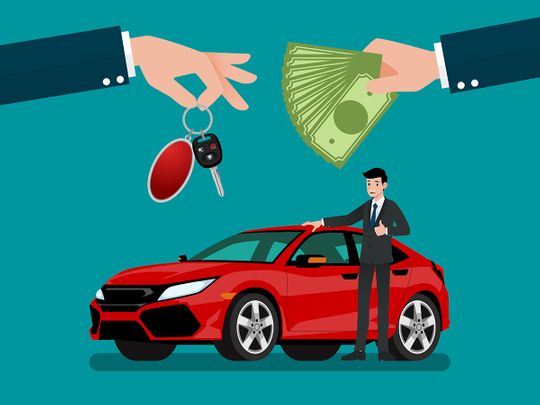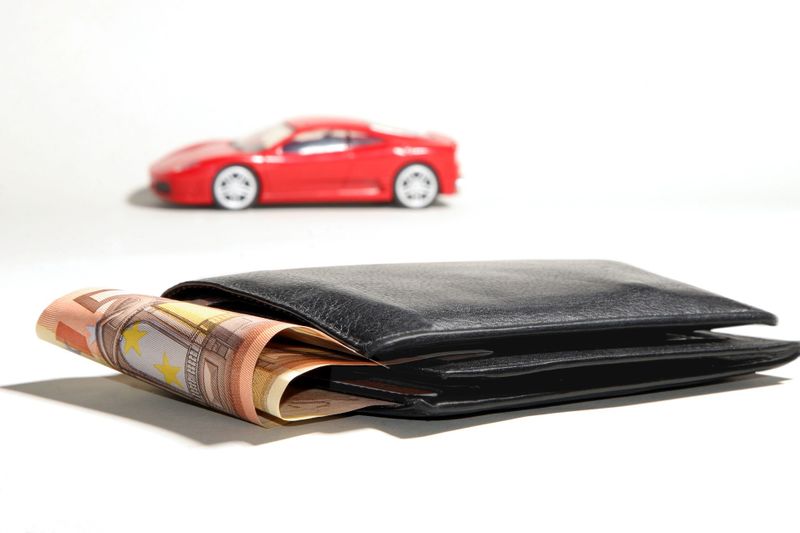
Dubai: Soaring interest rates have left many car shoppers stuck with larger loans and higher monthly payments. But with interest rates being lowered drastically now - and more cuts are on the horizon, do you stand to gain from refinancing your existing car loan now?
As car payments can be a sizeable chunk of your budget, once you have financed your car, you may feel stuck and committed to the term of the car loan and payment. However, this doesn’t have to be the case.
Car loan refinancing can help you change almost every aspect of your car loan — term, rate, fees, etc. But it could come at a price and potential higher amount in the overall paid interest if you extend your loan term.
However, with rates dropping there’s a lot more to consider than just what’s happening with interest rates on the central bank level.
“Before refinancing your car loan, you need make sure you look into your reasons for refinancing, the value of your car and the overall cost,” explained Ibrahim Riba, a senior car insurance and loan salesman based in Abu Dhabi. Here are a few criteria you need to consider before you get started on it.
Why should you refinance my car loan?
You can refinance your car loan for many reasons. Here are a few such instances:
1. You might have got a high rate initially and now your bank is offering a more competitive rate given that rates have started coming down after the recent rate cut.
2. You want to pay your car off sooner, but you don’t want to pay interest or penalties for early repayment.
3. You want to reduce your monthly payment. If you stretch your loan on a longer term, you’re likely to get a lower monthly payment, especially if you lock-in a lower interest rate.
“Even if rates haven’t changed, improving your credit score may be enough to get a lower rate. The better your credit, the more favourable loan terms you’ll receive,” added Riba. “If you’ve improved your credit score since signing for your initial loan, you may qualify for better loan terms.”
What are the costs you should weigh?
“When you’re comparing various car refinance offers, you need to look beyond the quoted rate and the potential monthly payment,” explained Jacob Koshy, a Dubai-based automotive industry analyst, currently specialising in retail pricing and how interest rates can impact them.
“Before refinancing, also consider whether fees will impact your overall savings. For instance, your current auto loan may have a prepayment penalty in place. Also calculate the overall interest over the life of the loan.
“Refinancing into a longer term loan could mean your outstanding loan and payment would be higher than the value of your car. Even if a bank may allow this to happen, avoid it. You don’t want to be in a situation where you will have to put extra money in to settle your car loan if you have to sell it.”
So in short, while refinancing is a good way to stretch your loan term, don’t go beyond what’s reasonable for your car value.
Are there any other risks to consider?
“If your goal of refinancing a car loan is to pay it off quicker, let you bank know. They might be able to work out a deal for you that is similar to refinancing without the costs that comes with taking on a new loan from a new lender,” added Riba.
“In addition, think of how much you will save over the life of the loan. Although debt is not something to want to hold into, refinancing a car loan to save a small amount of money over several years may not make a lot of sense.”
“In fact, in some aspects, refinancing could even hurt your financial health at times,” noted Koshy. “For example, if you’re planning to buy a home in the near future, this move could signal issues with your overall financial situation. So think twice between getting tempted to refinance your car loan.
“This is because every time you apply for credit, the hard inquiry will reduce your credit score by a few points. If you then open a new loan account, it’ll lower the average age of your accounts, which can also lower your credit score.”

Four steps to take before refinancing
According to Riba and Koshy, here are some steps to take before you refinance your car loan, while being mindful of certain mistakes you could make.
Step #1: Now that you are aware of the pros and cons of car loan refinancing, see to it that you have all the information before you accept an offer.
Step #2: Know your current rate, your current loan terms and overall costs if you keep your loans. Now, compare this to what you’re being offered.
Step #3: Take into consideration the depreciation of your car and potential changes in your situation — like needing a different car or having to sell the car and relocate.
Step #4: Know how your lender will value your car. A market price for an old car can vary significantly and this value is likely to guide the interest rate for your loan.
Four mistakes to avoid when refinancing
Refinancing your car loan doesn’t always make financial sense. The main mistake you can make when it comes to refinancing is timing. If any of the following scenarios apply to you, it may be worth it to stick with your current loan.
Mistake #1: You’re far along in your original loan’s repayment: Through the amortization process, spreading out a loan into a series of fixed payments, your interest charges gradually decrease over the life of the loan. As a result, a refinance has more potential to save money when you’re in the earlier stages of repaying the original loan.
Mistake #2: Your odometer is hitting big numbers: If you’re driving an older car with high mileage, you may be out of luck. Most auto lenders have minimum loan amounts and won’t find it worthwhile to issue a loan on a car that has significantly depreciated in value.
Mistake #3: You’re upside-down on the original loan: Lenders typically avoid refinancing if the borrower owes more than the car’s value (also known as being ‘underwater’).
Mistake #4: Your current loan has a prepayment penalty: Some lenders charge a penalty for paying off your car loan early. Before you refinance your loan, investigate the terms of your existing loan to make sure that there are no prepayment penalties.
Bottom line?
The primary reason to consider refinancing is if you can qualify for a lower interest rate and save money in the long run. Technically, you can refinance your car loan whenever you want, even shortly after you buy the vehicle.
But depending on where you are in the repayment schedule, your actual savings can vary. You can use a car loan refinance calculator, which are freely available online, to run the numbers for your situation to see how much refinancing can save you.
If the interest rate on your car is much higher than expected, consider other options. For example, would it make sense for you to take a personal loan and payoff your car, if your goal is to get out of the car loan sooner?
Similarly, if the goal is to get more cash on hand, a personal loan may be the answer.









